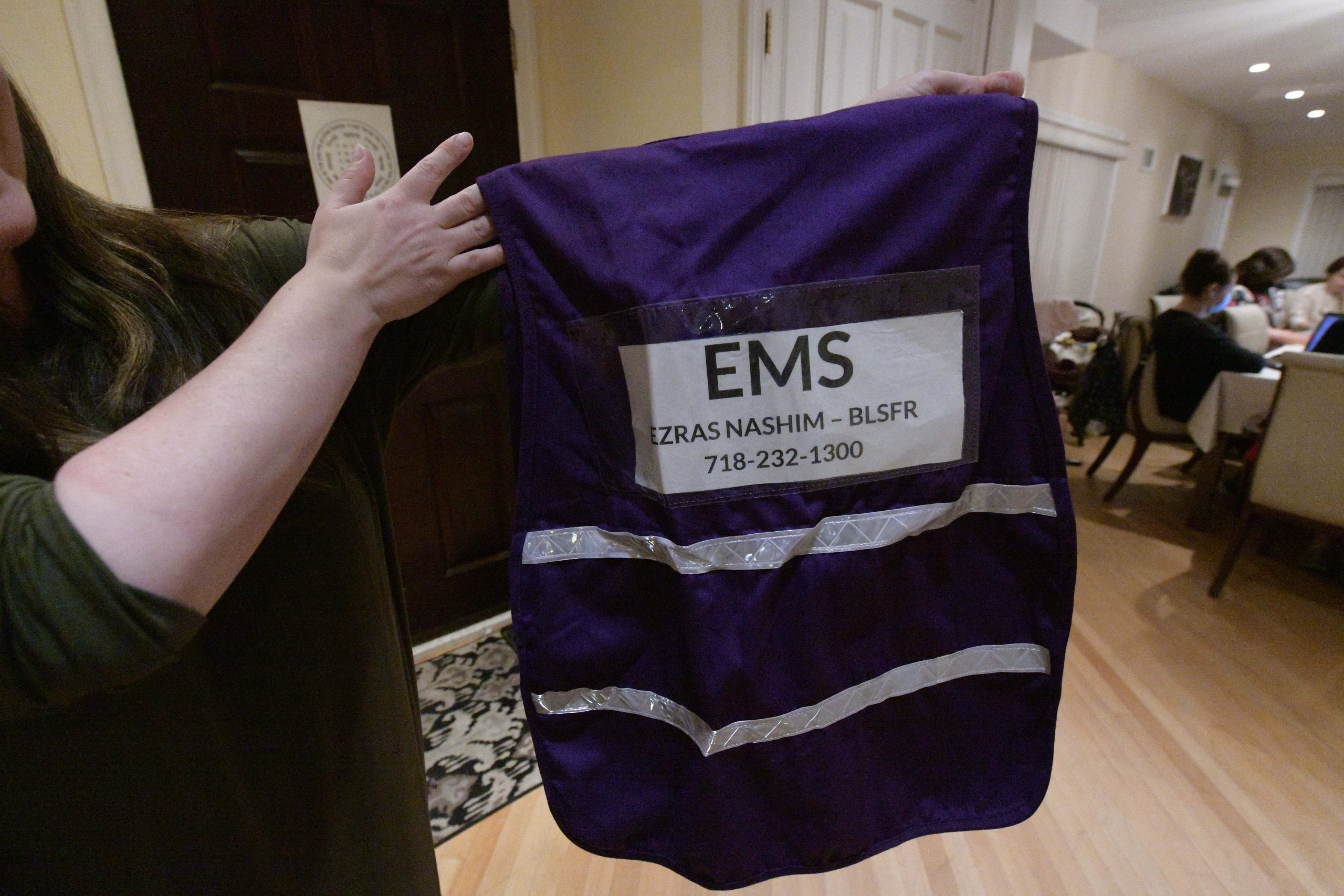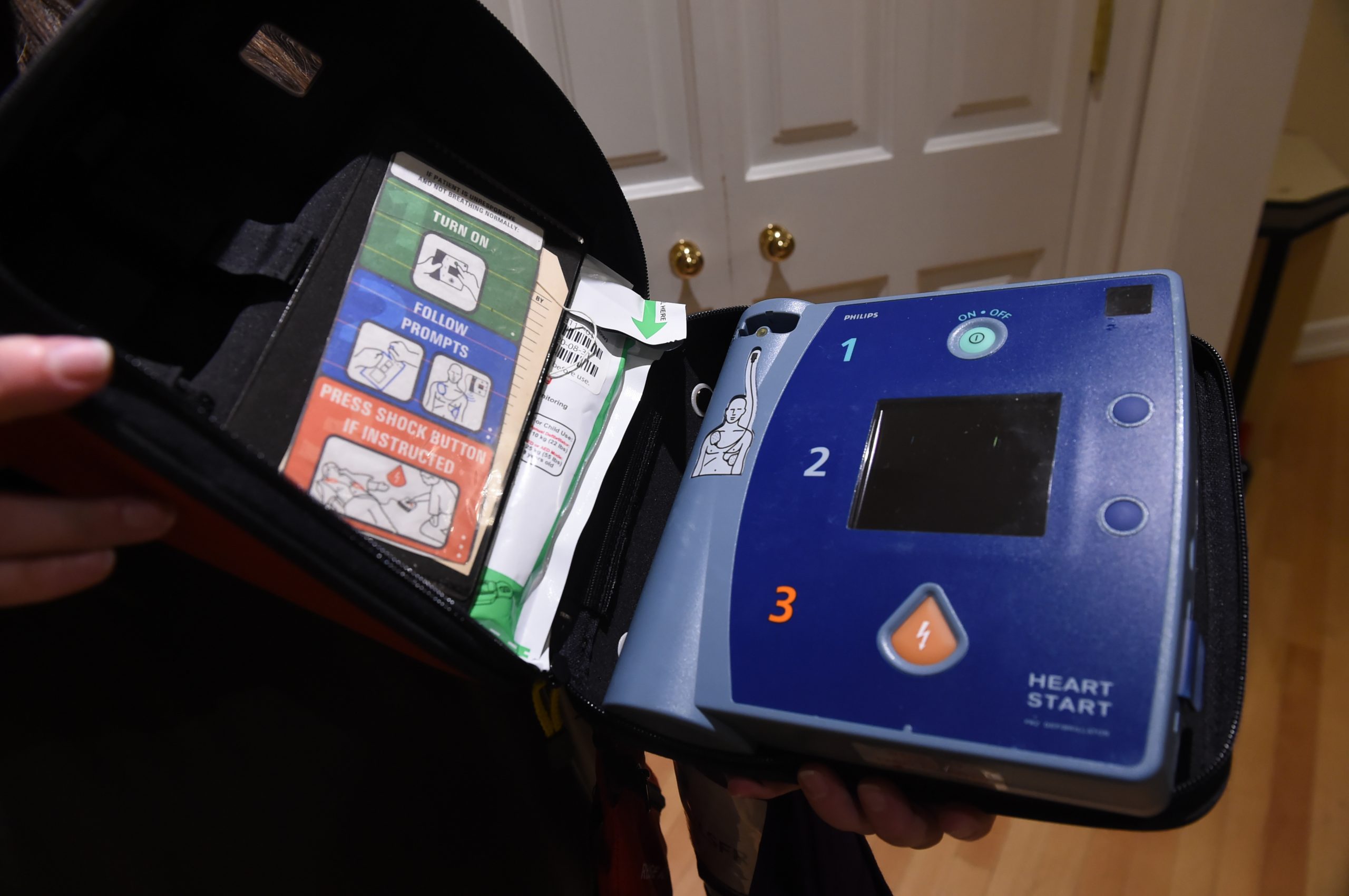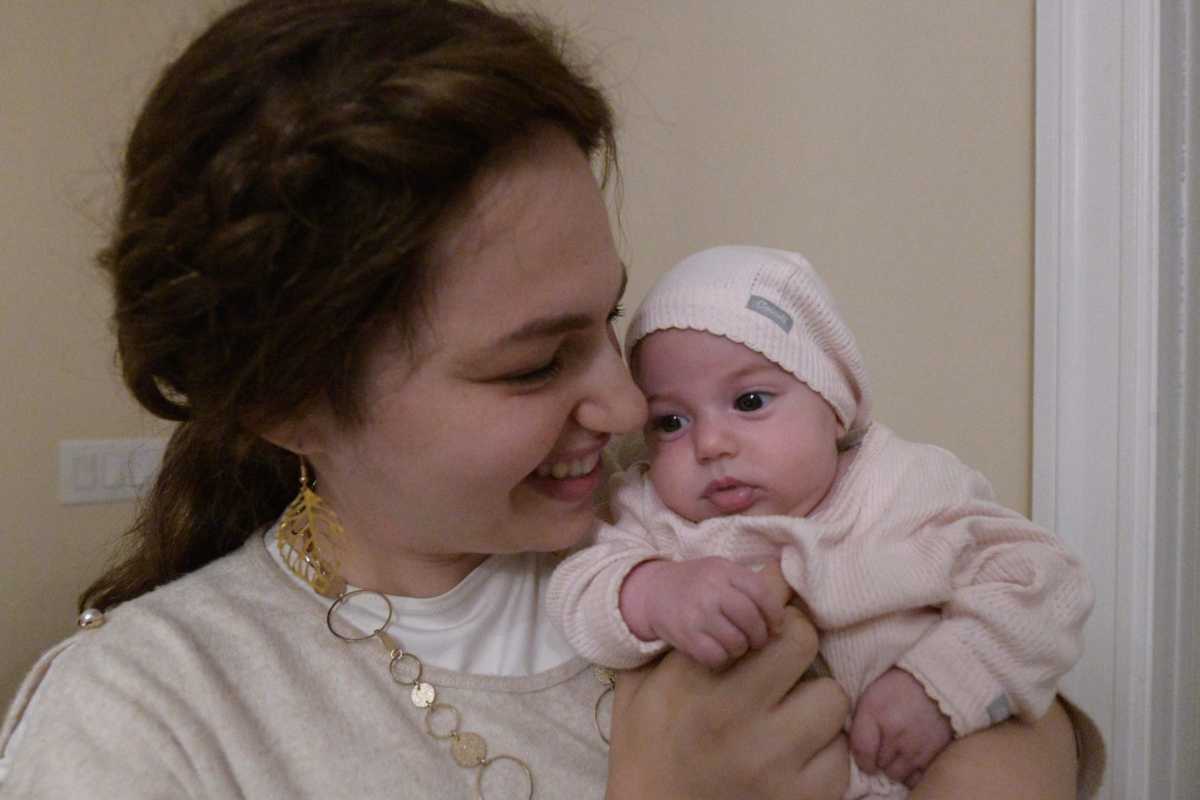A dozen Orthodox Jewish women sit around a dining room table in Midwood, Brooklyn, with computers open and light glaring on their faces. While it resembles a family dinner, the conversation was anything but stories shared while breaking bread.
At this, the latest meeting of the new Ezras Nashim volunteer ambulance corps — the first of its kind composed entirely of women in the Orthodox Jewish community — the talk focused on the best methods to properly dispatch emergency medical teams to women in distress.
Ezras Nashim — which translates in English to “assisting women” — came about due to the high demand from Orthodox women looking to be treated by women rather than being handled by the all-male Hatzalah volunteer ambulance corps.
The women at this table were not only learning more about emergency dispatch. They were also celebrating their recent certification by the State Health Department, allowing them to purchase their own ambulance and for their trained emergency medical technicians to have lights, sirens, and VAS plates to respond to emergencies, much their all-male counterparts at Hatzalah.
Traditionally, Hatzalah, a worldwide ambulance corps, has barred women from being first responders, reasoning that women must be modest in public and only men should handle emergency cases. They fought the certification of Ezras Nashim, going as far as to retain lawyers to successfully stop the women’s group from getting certification for an ambulance in the City Council.
The legal battle milked the fledgling resources of Ezras Nashim, costing the upstart group nearly $100,000 to fight Hatzalah in the City Council and win state certification.
It was Judge Rachel Freier, the only Hasidic woman on the Criminal Court bench, who led the fight for Ezras Nashim to secure an ambulance.
Leah Levine, director of operations for the service and the judge’s daughter, said her mother started it in 2009 as a special response for women who wanted a woman to handle them in cases of sickness, injury, and those going into labor. She the service received a license to be a “basic life saving” service but was denied the right to get an ambulance.
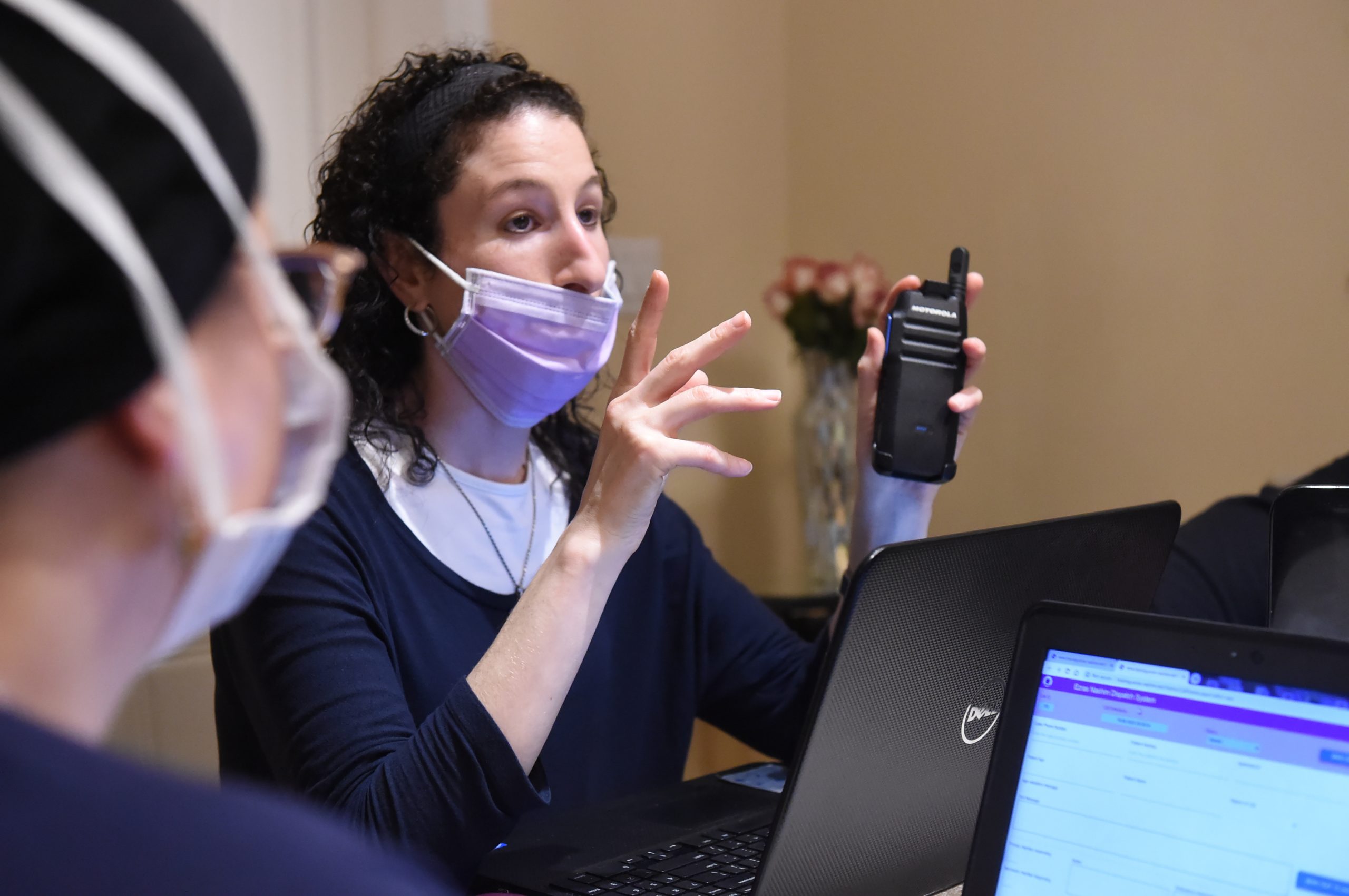
Levine, who gave birth to a child with help from Ezras Nashim, said her mother and others approached Hatzalah to join but were told: “go form your own organization.”
So when they did, she said she was surprised that Hatzalah would spend money to pay for attorneys to fight them in the City Council.
“Hatzalah doesn’t accept women paramedics so they even told us to form our own group, the rabbi even told us to and then they fought us,” Levine said. “We are here to save women the embarrassment and shame they feel when being handled by men in an ambulance. There are times, especially with bathroom issues, childbirth, and other women’s issues that a women’s ambulance can save them that feeling of shame. We are here to help.”
Despite the opposition, Levine said, Ezras Nashim found plenty of public support, and they’ve already started a fund-raising campaign to secure their ambulance.
But they didn’t wait to begin serving the public. So far, they’re responded to 450 emergency calls this year, with members using their personal vehicles to bring two-way radios, medical gear, and defibrillators with them to wherever they are needed.
“Women now have a choice of who to call, and while there are still a few against us, most average people are so happy,” Levine said. “My husband has been saying how excited he was and so many people have expressed support – this is not the behavior of average Jewish men. But there is still a few people with a lot of power who are using propaganda making noised against us and what they are saying really isn’t true.”
Levine said the group “makes women feel comfortable and more willing to call for help – no woman should delay calling for help.”
She said the women EMT’s dress modestly and “appropriately” have special vests, and are trained to make their patients “feel right and feel comfortable.”
“We give women a choice and that should not up to few people to decide, if good idea or not — some women are traumatized for years — if a woman is happy with the treatment Hatzalah that’s great – they are a great organization,” she added. “We are here to provide a service and there is no female orthodox agency to fill that gap.”
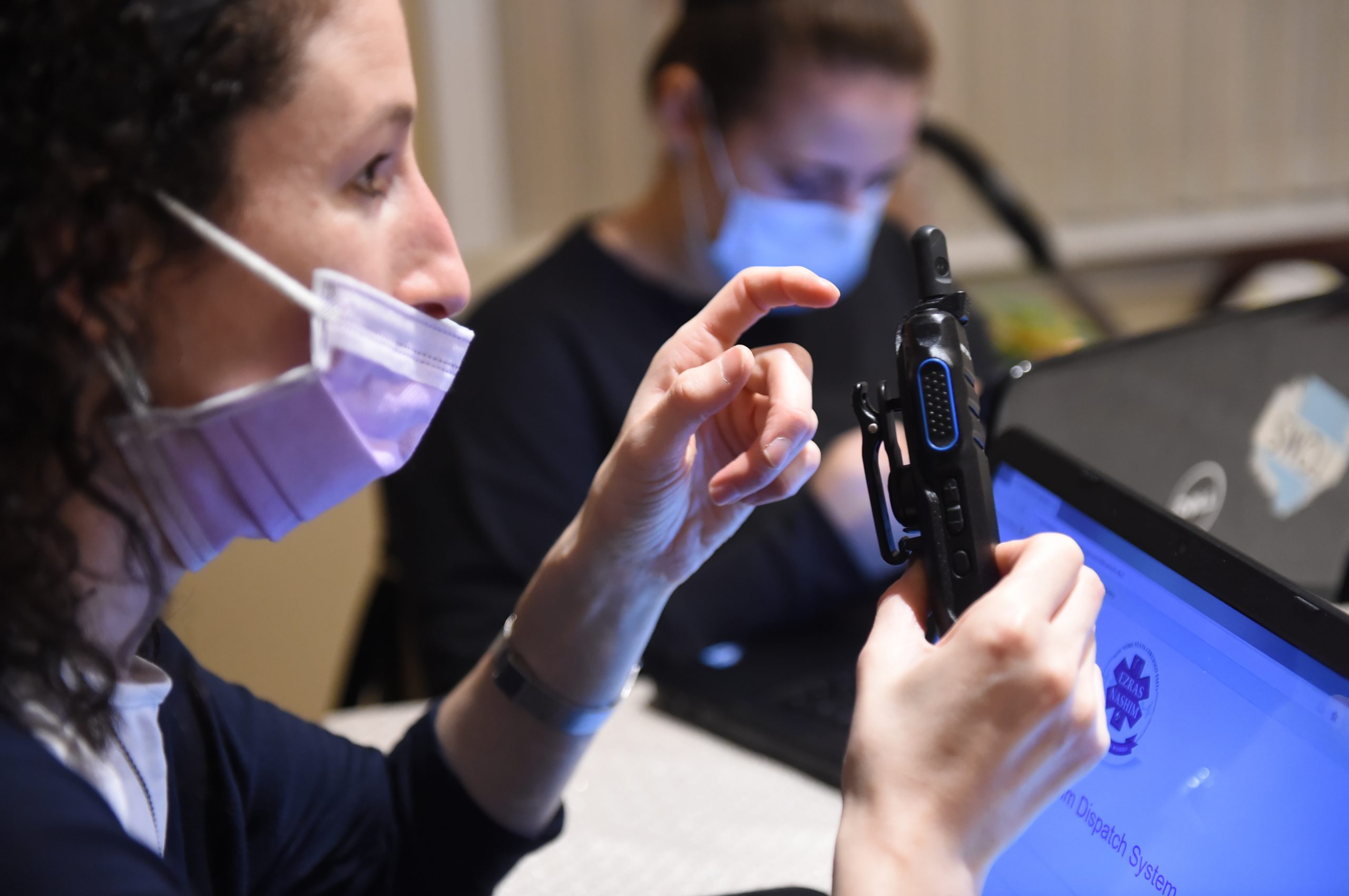
As of now, Ezras Nashim are 21 women training to be EMTs, and Levine herself is training while running the organization. There are currently 45 women EMTs, in branches in Flatbush, Borough Park, the Five Towns in Long Island, and 11 EMT’s training in Monsey, New York.
The women at the dispatch meeting understood the importance of their work, including Chani Richter, 35, an EMT who attended the dispatch meeting with her 9-week-old daughter Sarah with whom she gave birth in her home with the help of Ezras Nashim – not because she wanted to, but because the baby came so fast.
“I had them on speed dial because they were incredible, it was like boom the baby is here,” she said as she held her sixth child, a dispatch radio attached at her hip. “The whole street was then filled because 911 sent three ambulances and police cars, but if Ezras Nashim had an ambulance, they could’ve taken me. They took me with lights and sirens, but I didn’t really need all those trumpets – I had a healthy baby. We didn’t need a whole announcement and wake up the whole street.”
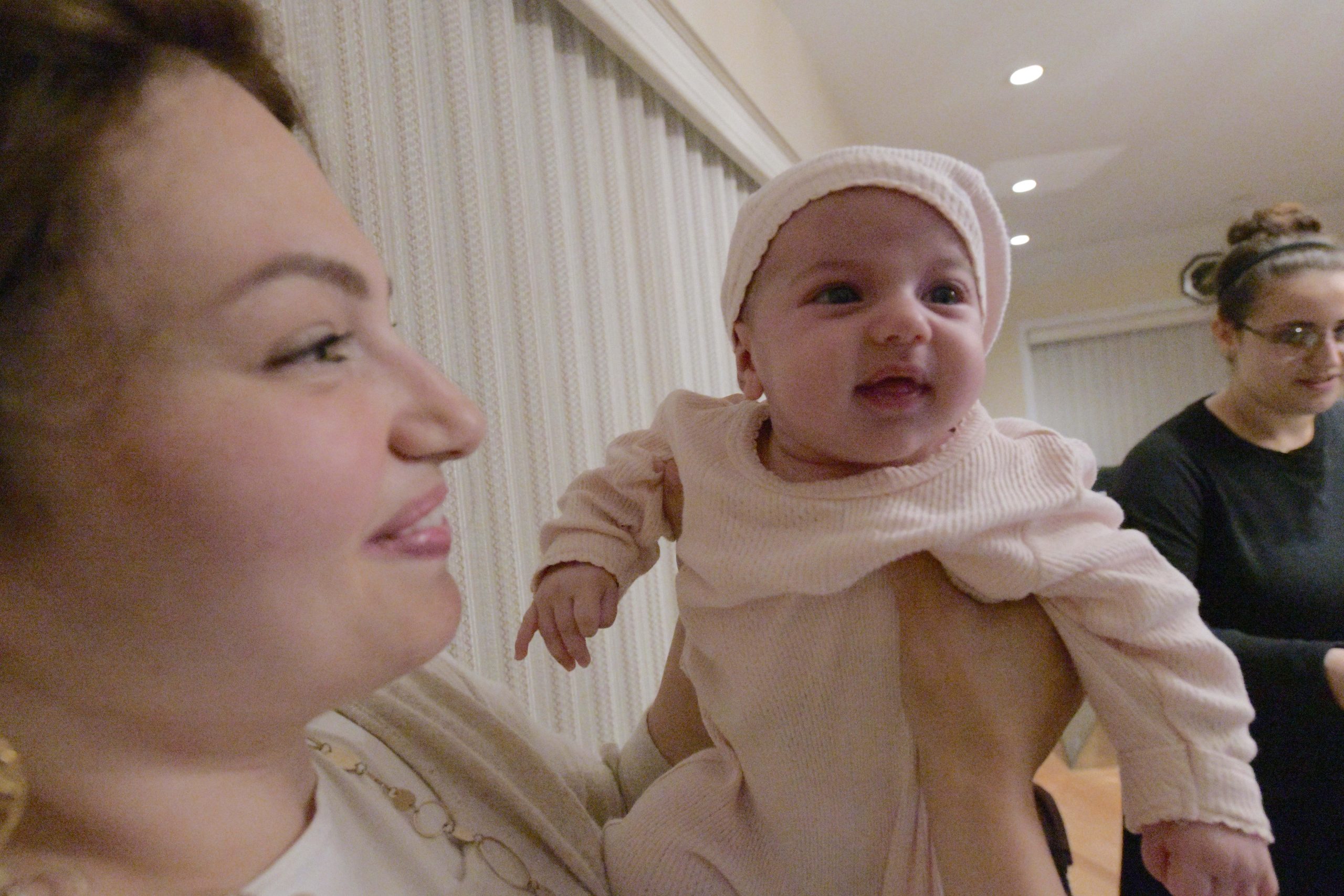
Andrea Sachs, originally from Maryland, is an EMT and currently working at a hospital as a scribe. The Queens resident said she saw an ad for Ezras Nashim and decided to join.
“I really liked what they stand for – they stand for options that align with the values of women,” said Sachs, a graduate of Touro College.
Sachs said the volunteers “really care about you – its the community – and that’s the difference between calling 911, and you may not get a woman to help you.”
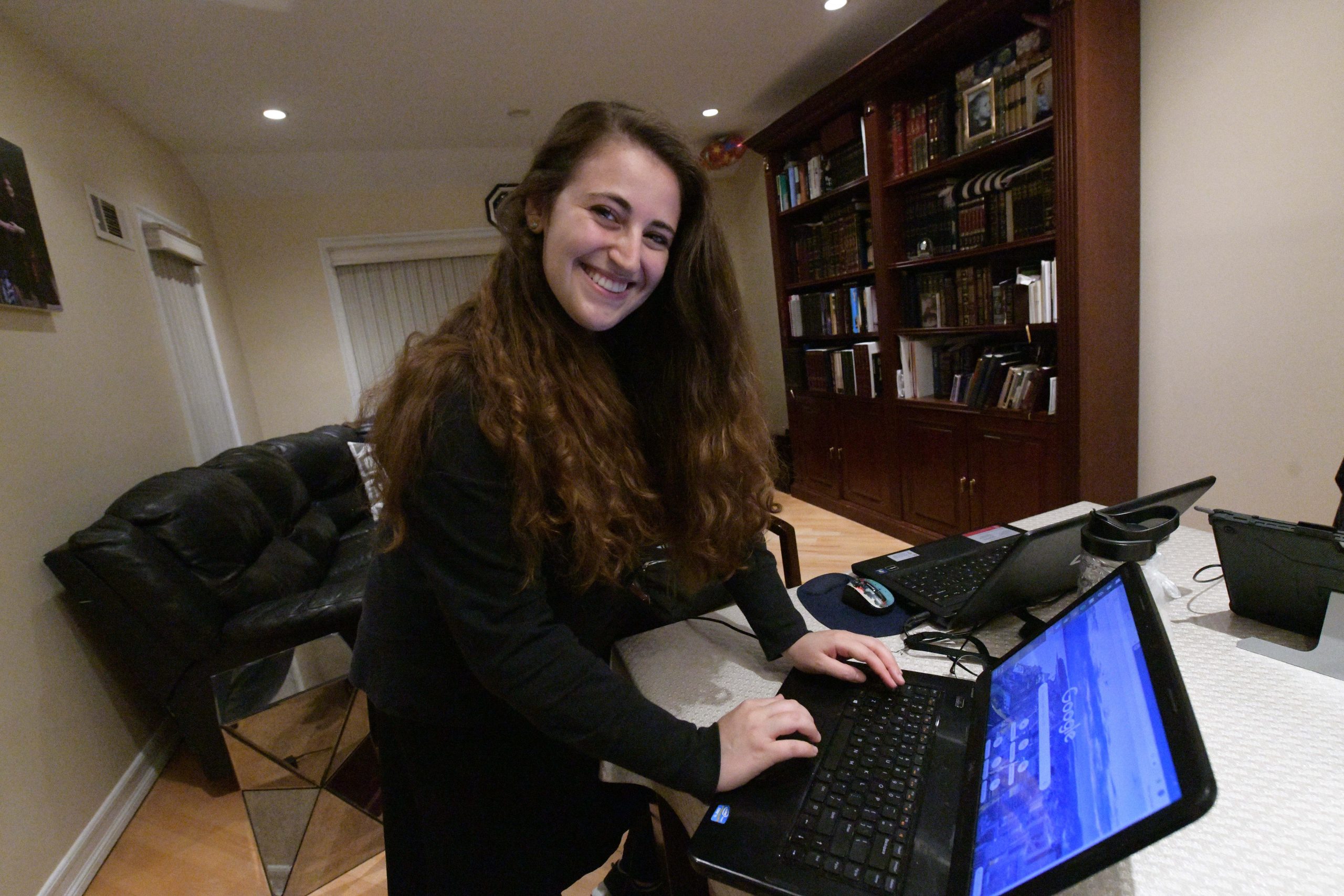
“It’s the same level of care, but now you have the option of having a woman help you instead of having the only option from the community of men only,” referring to Hatzalah. “I work in an emergency room and women have panic attacks, domestic assault, and sexual assault even rape and I’ve heard where a woman asks that a male not see her.”
Levine said that while they have the license to move forward, they must now step up fundraising to buy an ambulance and get a garage to keep it. She said they raised $30,000 in one month and are starting new branches.
Anyone interested in helping this organization with a donation or want to volunteer may go to their web site at ezrasnashim.org. To get immediate assistance, call 718-232-1300.
